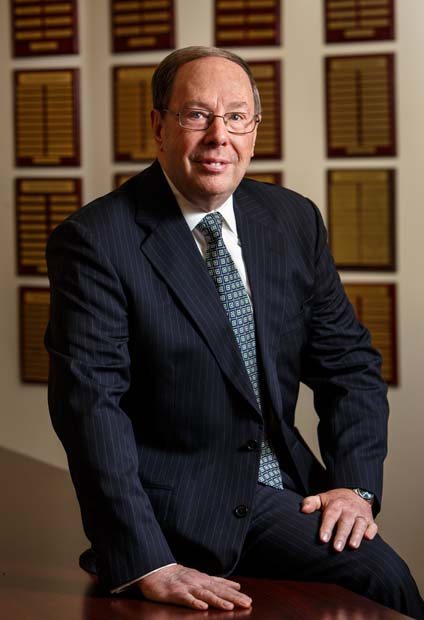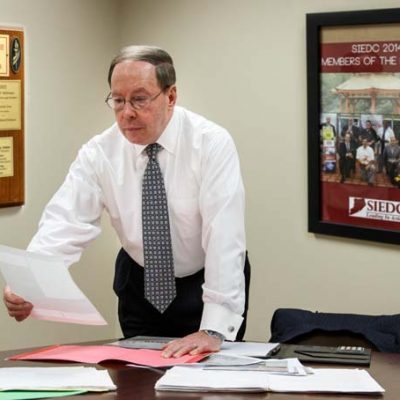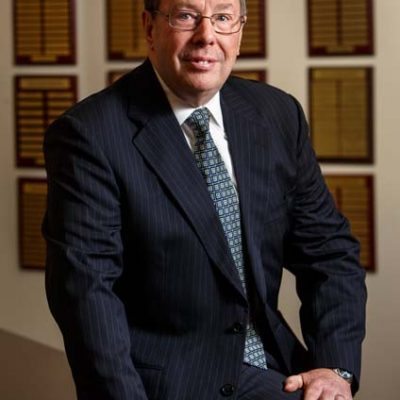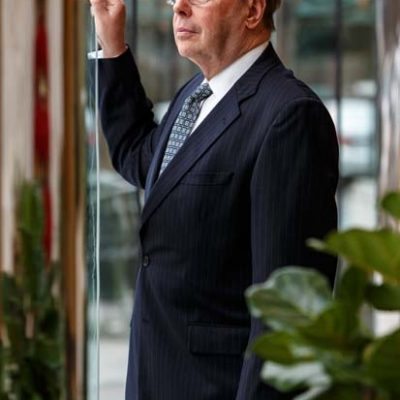
SIEDC board’s executive vice chair Bob Moore looks back on Four decades of managerial experience and boosting borough commerce
by Jessica Jones-Gorman • Photos: By Vinnie Amessé © www.amessephoto.com
Bob Moore was 21-years-old and fresh out of college when he took an assistant supervisor position in the call center of Brooklyn Union Gas and quickly learned, in a trial-by-fire fashion, how to be a manager.
“I had just completed a management trainee program, which was a six-week orientation of the entire company, and in the end, after being evaluated, trainees chose which department they’d like to work in,” Moore recalled. “I requested to take a position in the call center because that tends to be the hub of most companies, and I felt the quickest way to learn was to deal with client complaints, billing, and service calls. But I was young, suddenly in charge of a group of 20 people, all two- and three-times my age, and doing their jobs for 10, 15…20 years. So,
I had to take all of that book learning and adapt it into real practice. How do I motivate this team? How do I come to know them and make friends with them while still being disciplined?”
This initial career choice turned out to be a success. Moore worked for the utility company for a little more than 37 years, retiring in 2007.
“I think dealing with customers prepares you for any other place you want to go in a company,” Moore said. “I worked in almost every capacity with Brooklyn Union from customer service and credit collection to business reengineering. During the company’s transition to KeySpan, I became tied in to marketing and sales, and that remained my focus for most of my career.”
The job with Brooklyn Union allowed Moore to advance his education, too: He earned his master’s from Long Island University and attended the executive education program at Penn State University and Harvard Business School.
“I was able to meet other business people from all around the world,” Moore said. “Here I was working for this little gas company in Brooklyn, gaining insight from professionals from all around the globe. It was a wonderful opportunity and I found out that with the superior training I received at Brooklyn Union, I could go toe-to-toe with anyone and was completely on par with business professionals from major companies like Campbells, Kraft, and GE.”
Moore also participated in an exchange program with Osaka and Tokyo Gas, which enabled him to live in Osaka for three weeks and study how its companies operated. He also became chair of the American Gas Association, which advocates on behalf of more than 200 energy companies that deliver natural gas throughout the United States. In 2000, he became KeySpan’s board rep for the Staten Island Economic Development Corporation.
“When I first joined the SIEDC, it had a limited staff and budget…it was a real non-profit with bare-bones equipment and software that was out of date,” Moore recalled. “I knew that if we were going to deal with people of various sized businesses—small, medium, and very large—we needed up-to-date equipment, software, and policies.”
With his managerial background in play, Moore lobbied for the SIEDC to create a system in which every person who called into the corporation with interest in opening a business on Staten Island was handled in the most professional way possible, and had a entry in integrated computer systems that “talked to one another.”
“This way anyone who answers a phone could open up the account, see all of the details, and understand how we had handled their request, including any pending activity,” Moore said.
Together with other members of the SIEDC staff, Moore worked to create positive experiences for business owners throughout the borough. After his retirement, SIEDC board members encouraged him to stay, and he became the organization’s executive vice chair. In 2011, he became chairman, a position he relinquished in January to once again serve as executive vice chair.
“I think you need fresh eyes to constantly keep the organization moving forward,” Moore said of his brand of self-imposed term limits. “I will still be extremely involved, but I think it was time for someone else to take the lead.”
During his tenure with the SIEDC, Moore says he is most proud of the many local business efforts that he was able to assist.
“Together with community figures like Jim Oddo, Vinnie Ignizio, Steven Matteo and Joe Borelli, we were able to help form organizations like the South Shore Merchants’ Association, the West Shore Business Improvement District, the New Dorp Merchants’ Association, and the Richmond Valley Merchants’ Association,” Moore said. “It was truly wonderful to see so many people working together to maximize business here on Staten Island, and doing all they could to attract business to some of the borough’s vacant stores.”
Moore also lobbies for the West Shore Light Rail, a mass transit project that would extend NJ Transit’s Hudson- Bergen Light Rail system over the Bayonne Bridge and into the western and southern portions of the borough, and ultimately connect to the SIRTOA service at the Richmond Valley station. He has also worked with the College of Staten Island, Wagner College, and St. John’s University in an effort to keep local college students locally employed after graduation. Finally, he has served on the boards of the Staten Island Institute of Arts and Sciences, Victory State Bank and the Staten Island Zoo.
“I’m very proud of the evolution of the SIEDC and the organization’s ability to help boost local business,” he concluded. “I know those efforts will only continue for years to come.”
Staten Island Economic Development Corporation
900 South Ave #402 / 718.477.1400
siedc.org






